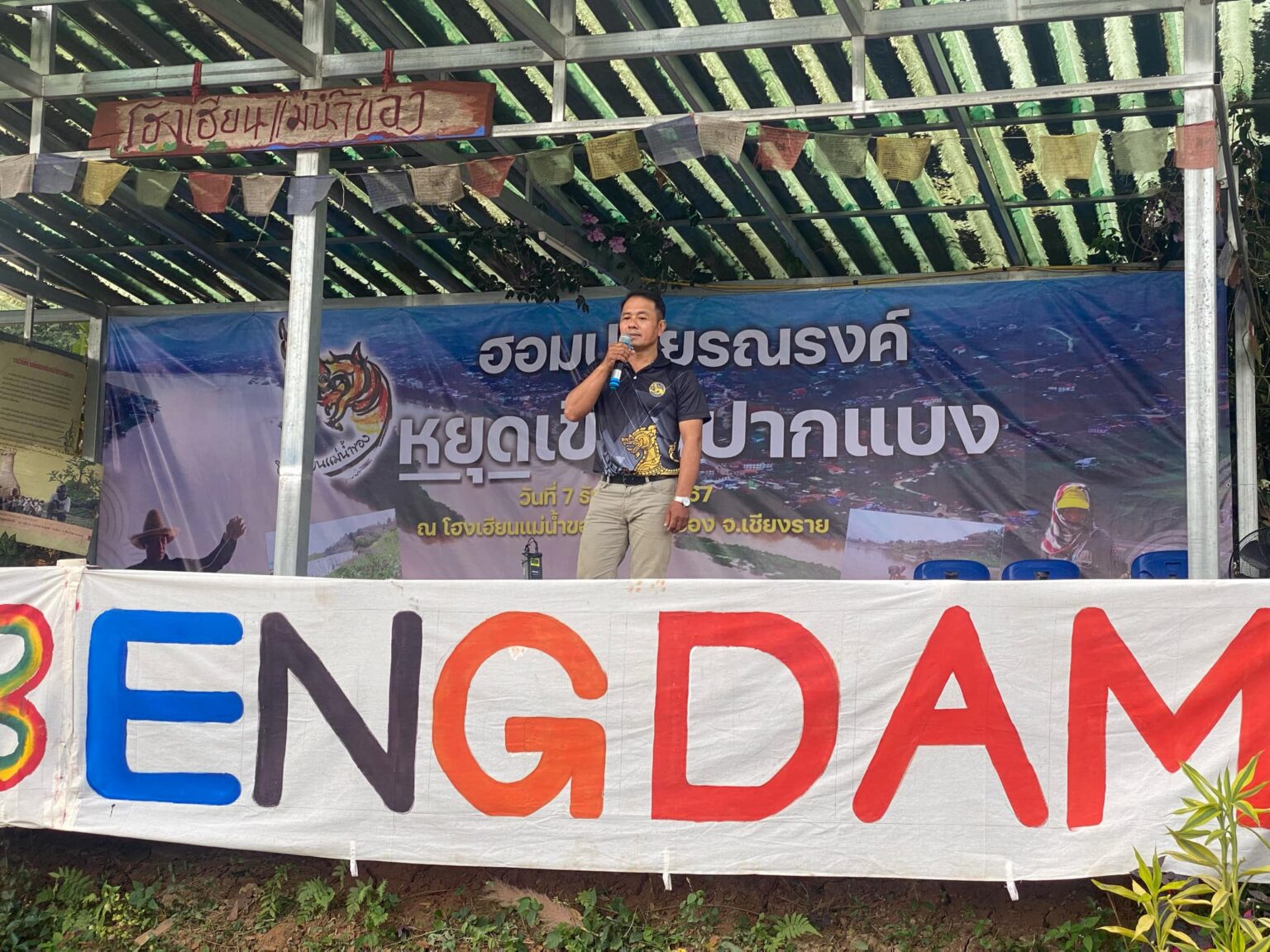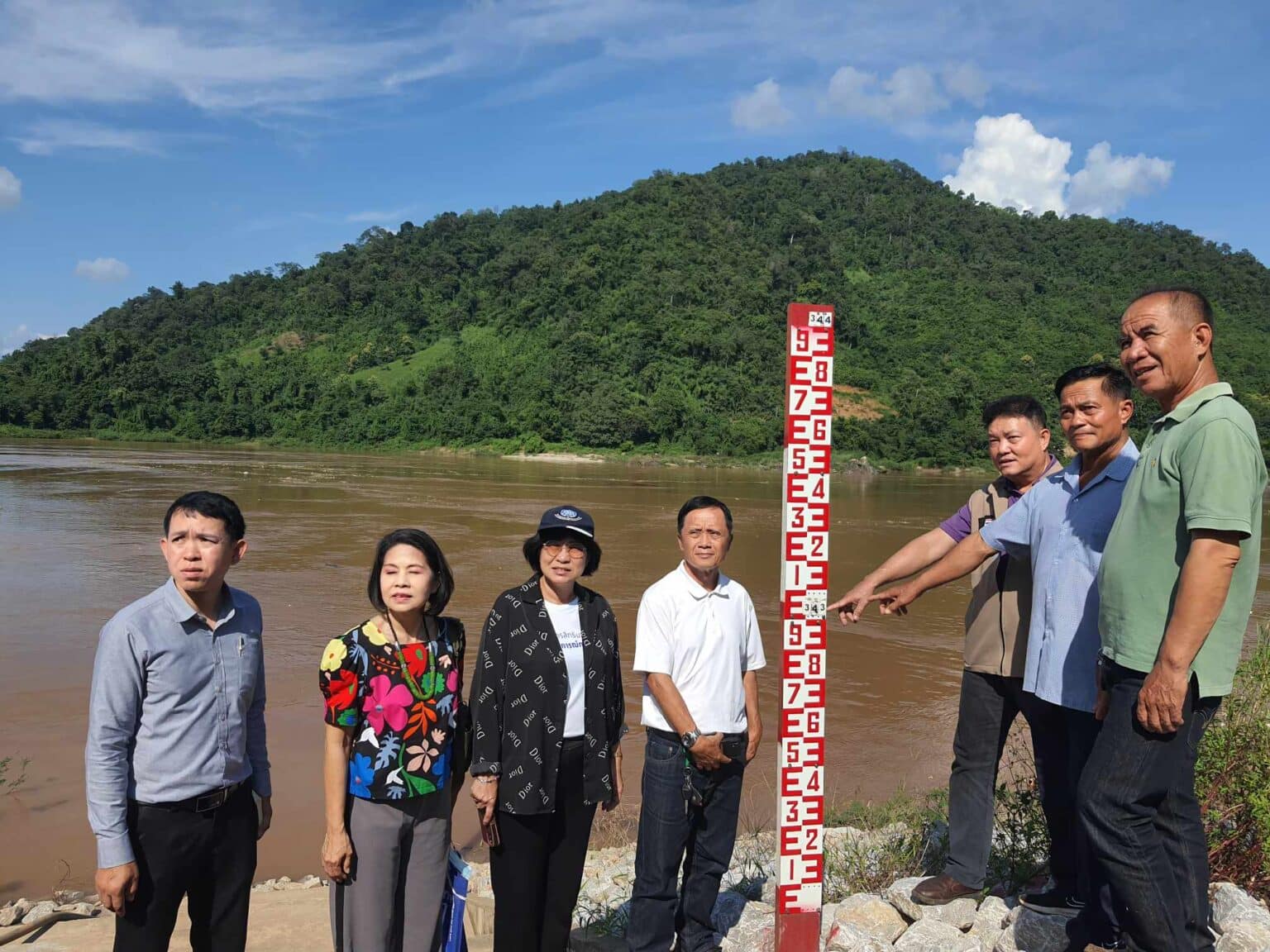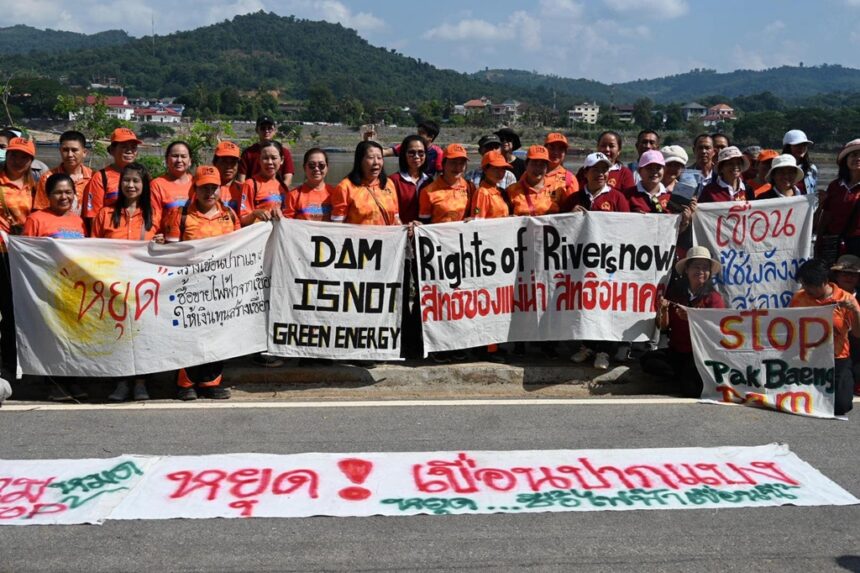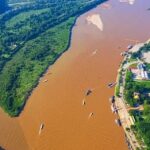On Sunday, over 150 people gathered in Chiang Rai’s Chiang Khong District to protest the Pak Beng Dam project, which will be built in Laos.
Villagers, community representatives, and local leaders, including village headmen, kamnans, mayors, and representatives from Chiang Saen District, Chiang Khong District, and Wiang Kaen District, convened to voice their opposition to the Pak Beng Dam project.
The Pak Beng Dam is scheduled to be constructed in the Wiang Kaen District of Laos, approximately 96 kilometres from the Thai frontier. Although the study of the cross-border impacts is still ambiguous, the Electricity Generating Authority of Thailand (EGAT) has already signed a power purchase agreement with the private company developing the dam project.
Mr. Niwat Roikaew, the president of the Rak Chiang Khong Group, stated that the Mekong River rose and overflowed into the Ing River and Kok River this year due to the absence of a drainage system. The Pak Beng Dam will only exacerbate the issue.
He stated that the construction of the Pak Beng dam must be halted due to the ambiguity of the study results and the uncertainty regarding the extent of the water’s rise upon its completion.
Consequently, individuals from various sectors along the Mekong River have convened to share their perspectives and convey the voices of the impacted to those who are accountable.
Dams Impact on the Mekong River

We are optimistic that this act of power will effectively communicate our concerns to the banks that have yet to execute a loan agreement with the developers of the Pak Beng dam project. By postponing the dam’s construction, the bank will provide us with additional time to communicate our concerns to the government.
He stated that today is significant because affected individuals will convene to consider the facts. In the past, the National Human Rights Commission, commissioners, and academics have visited the region to provide their perspectives on these matters.
Many individuals are concerned about water overflow from the river’s flow regarding dam construction. The villagers are apprehensive about the dam’s potential impact on the Mekong River’s elevation, as it will prevent sunlight from reaching the source of Kai, or Mekong River seaweed.
Furthermore, an additional inundation will impact the agricultural regions located along the Mekong River. The dam will exacerbate the situation by releasing a substantial volume of water during inundation, resulting in the Mekong River rising.
The rise of the Mekong and the backup from the Pak Beng dam could result in months of flooding in the tributary basin, which could significantly impact agricultural commodities, particularly rice fields.
Mr. Apichart Titta, Mayor of Muang Yai Subdistrict Municipality, Wiang Kaen District, stated that he did not oppose development; however, he believed there were alternative methods of generating electricity than damming the Mekong.
Solar power is an example of clean technology that is environmentally beneficial. According to him, this year’s inundation has raised concerns that the construction of Pak Beng Dam will increase water levels, potentially inundating crops, particularly due to climate change.
Pak Beng Dam Backwater

The Dam’s prospective backwater could negatively affect the Mekong ecosystems and the local population’s livelihoods.
He insisted that environmental impact studies and modelling of the backwater in the regions spanning Wiang Kaen to Chaing Khong and Chaing Saen districts were essential for addressing community concerns.
He stated that the environmental impact studies conducted by dam developers have primarily concentrated on the hydrological changes in the main river rather than its tributaries and adjacent areas.
The residents of communities such as Muang Yai and Huai Luek in the Wiang Kaen district, which borders Thailand and Laos, have recognized that their apprehensions regarding the backwater effects of Pak Beng are valid, given the comparable water levels caused by recent inundation during this rainy season.
Several residents in the affected areas experienced a significant loss of income in September as floodwaters from the Mekong River flowed into its tributaries and inundated their rice fields, maize fields and pomelo plantations.
Mr. Apichart Titta stated that the Pak Beng dam project is not worth constructing due to its long-term effects on the Mekong ecosystems and the local population’s livelihoods.














